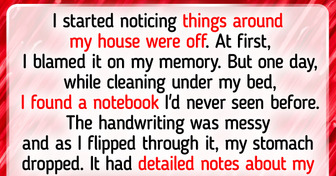12 People Share Restaurant Unforgettable Scenes That Took a Crazy Turn

Let’s go ahead and set an hour for you to wake up consistently every day of this week, say, 7 am.
There are a couple of rules to start off: you can’t hit the snooze button for one, and you have to get out of bed as soon as the alarm goes off.
Now, pull up your phone and set your alarm. Next on the list, sleeping hours. This will differ a bit depending on how old you are. Here’s a chart that might help. People aged 13 to 18 need around 8 to 10 hours of sleep.
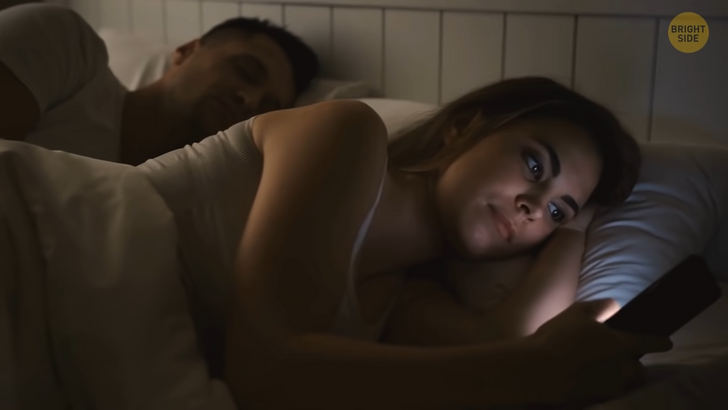
Older than that, 7 to 9 hours a day is good enough. Upwards of 65, it’s 7 to 8 hours.
Say you need 7.5 hours of sleep. For this, you’ll need to go to bed at 11:15 pm, which leaves 15 minutes for you to actually fall asleep.
This means no electronic devices when you’re in bed. None! Otherwise, you might just end up watching videos all night long, and... there goes your sleep. When you’re sleeping, you go through different stages. Stage one is when you’re between being awake and falling asleep.
Stage 2, you’ll be settled in your bed, and your body temperature will get a bit lower. This is when you might want to snuggle in your sheets.
Stages 3 and 4: your body starts recovering from the hard day you’ve had. Think of it as you getting energized by the minute.
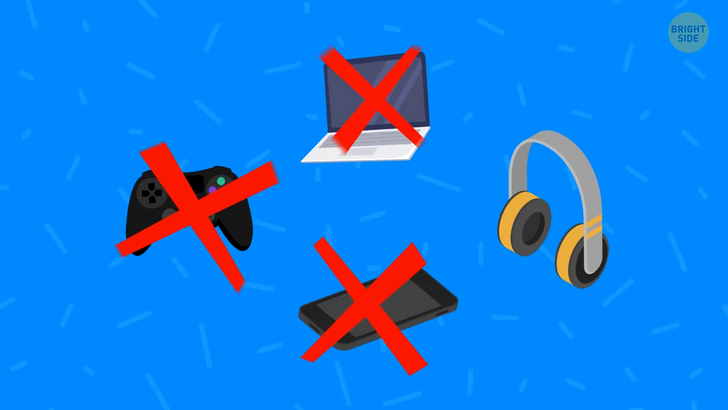
During stage 5, you finally start dreaming. It’s called the REM cycle. The ones before were the NREM. They stand for: rapid eye movement and non-rapid eye movement. When you’re flying over the Statue of Liberty in your dreams, your eyes are probably trying to keep up with you, even with your eyelids closed.
This last one — REM, is also the one that boosts your mental and physical performance. So, when you wake up, you’re ready to tackle your day with all your brain power. If you’ve got a tough day ahead tomorrow, REM is what’s going to get you prepared for it.
If you have adequate hours of sleep and are consistent with your schedule, it might even eliminate any need for afternoon naps or the drowsiness we feel throughout the day sometimes. If you can’t sleep and you’re just turning the TV on and off, here’s what you can do.
First of all, turn the TV off for good. Second, you can try and set up a nice and quiet environment for yourself. Quiet doesn’t always mean silent.

It might help to have an ambient sound going on in the background. Like waves crashing down on the sand or rain falling in a forest.
If you’re busy thinking about your next meeting or stressed about work, think about a word or a phrase to get your mind off that. You can even count sheep. Baaaa.
Third, embrace it. It’s okay to be thinking about stuff. We usually think about life in quiet spaces, and our bedroom is probably the quietest space of all. It’s just like when you’re taking a shower, deep in your thoughts, and just like that, 15 minutes go by.
Fourth, find a comfortable position to fall asleep. You’ll want this to be your bed because otherwise, you’d have to move, which might ruin your sleeping plans.
You could fall asleep on the couch, but that sounds counterproductive because you’ll end up moving to your bed anyway. If none of these work for you, try controlled breathing relaxation techniques instead.

Much like counting sheep, here you’ll be counting your breaths at the same time that you control them.
Do it with me: Inhale, now exhale — Inhale again, now exhale.
Like this, you’re reducing your stress levels and preparing your brain for sleep.
It’s best done at night and not while watching a YouTube video. But if you happen to be watching this in bed, great. You’re already halfway there.
Here’s another one: The 4-7-8 method.
What you do is place the tip of your tongue near the ridge behind your two front teeth, and you hold it there throughout your breathing exercise.
Now, with your mouth closed, you want to slowly inhale through your nose. Count to four while you’re doing this.
Next, you’ll hold your breath and count to seven. The last step of this breathing exercise is to exhale with your mouth opened and count to 8.
Repeat it three more times, and you’ll find yourself in dreamland in less time than you can blink. Literally.

These exercises are especially great for those who can’t visualize stuff very well. Or you might not even want to go through the trouble of counting sheep. [count me] You might just want to empty your mind instead.
During the day, one thing you can do is get loads of sunlight. It helps regulate your internal body clock. If you can’t get out of the house, bright artificial light will do just fine.
And at night, it’s the other way around — you need to be in a dark place. It’ll make you sleepier, and it even boosts the production of melatonin! Put simply, it’s a sleep hormone. Think of it as a secret ingredient.
If you suddenly wake up during the night, be mindful of not looking at your clock! It’ll stress you out, and your mind will spiral until you’re fully awake. And then, all you can think of is, “I can’t fall back asleep,” with your eyes wide open, looking at the ceiling.
Tiring yourself during the day helps, for example, running or swimming. Any exercise, really. It’ll make you feel better and have a healthier sleep. Just make sure what you’re doing is not too strenuous because it might have the opposite effect.
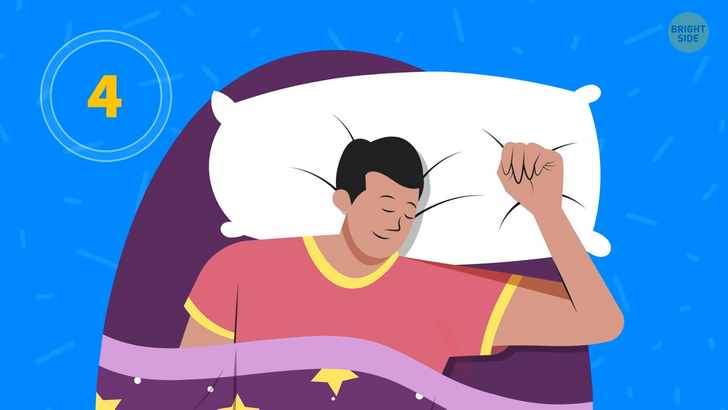
Here’s a tip: Early morning workout means a good night’s sleep. [07:00 AM] Go out for a hike or take your bike out and go for a ride.
In bed, suddenly waking up from a dream, it feels like you’re falling! You’ve probably experienced this. It has a name: hypnic jerks, and don’t worry, it happens to everyone.
Regarding our fellow mammals, sea otters sleep on the water, floating with their backs on the surface. Literally a water bed. One trick they use is sleeping in strands of kelp. But here’s something cute — they hold hands to prevent them from drifting away from each other. Aww.
A lot of our lifetime is spent sleeping, more precisely, a third of it. However, cats have us beat, they spend 2/3rds of their lives sleeping. But that’s not all — bats beat even them. They sleep for 82% of the day, that’s 19 hours spent with their eyes closed! They win the crown.
Get this, a giraffe only needs around 2 hours of sleep PER DAY! You might think some humans can do with just 5, but that’s not true! If we were to have 5 or fewer hours of sleep every day, we’d be so sleep deprived we’d go around hugging corners, looking for a nap.

You might eventually get used to being without the hours of sleep you need, but the downside is that you won’t be at your peak performance, nor will you be as creative or focused. It’ll affect your day-to-day activities and cause memory issues. Chances are, you won’t even remember what you had for dinner last night.
And, if you need to make a choice on, say, what birthday cake to get for your co-worker Karen, whose birthday is tomorrow, you might have a hard time with that too.
If you’re sleep-deprived and hit your knee on a table or step on a Lego, it’ll hurt more.
I, for one, like black-and-white movies. I think they add a nostalgic vibe to the cinema. But, as it turns out, 12% of people dream entirely in black and white! Their dreams are like cowboy movies, I can just picture someone riding a horse in the old west already.
Now picture sleeping for the entirety of winter — hibernating. Well, humans can’t do it mostly because our ancestors were tropical animals, which means there was no need for them to hibernate.
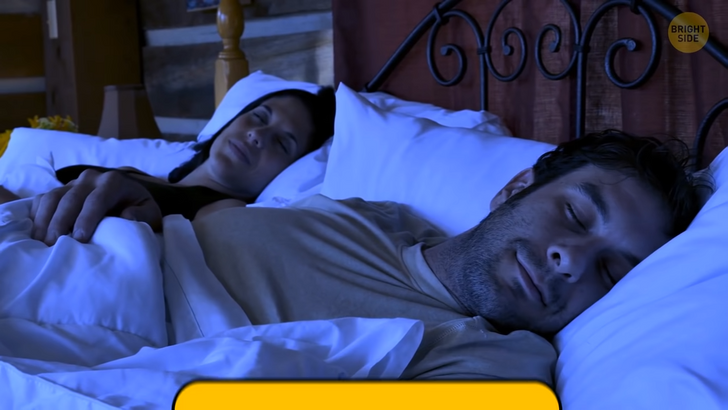
And, when we eventually started migrating to really cold places, it was already too late for us to evolve in a way that would allow hibernation. But a dream that would last 6 months? Count me in. It’d always be warm, and I’d be the fastest runner around.
Still, we had shelter and warm clothes. Fire helped a lot with our survival too. Unlike our bear friends, we sat in our caves with our bodies warm next to the fire.
[Yawns] ...okay that does it for me...zzzz








